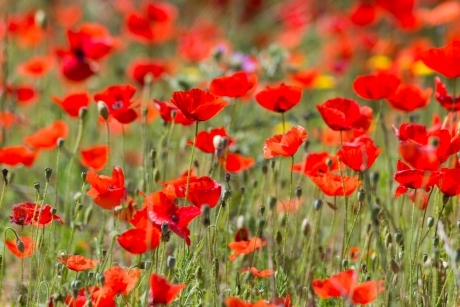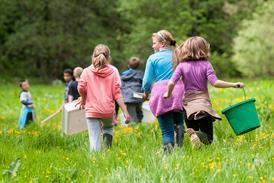School Travel Organiser finds out how a visit to the National Memorial Arboretum in Staffordshire can be an eye-opening experience for students and benefit studies in Art & Design and History.

The National Memorial Arboretum is a growing tribute to those who have served and continue to serve the country. For schools, it offers a wide range of opportunities for students of all Key Stages to explore over 300 memorials, through ready prepared guided tours, self-led visits, workshops and bespoke packages.
The tours can include a mix of memorials from different conflicts and civil services, or be based on a specific conflict. There are also options for alternative themes such as memorials that represent peace and reconciliation, for example the Quaker memorial.
Subject links
To tie in with History studies, students will learn about the cultural and military connections made by the memorials and the effect the conflicts have had on social history. They will hear about the festival of remembrance and the significance of the poppy, which is worn on the anniversary of Armistice Day on 11th November.
Pupils will also discuss and learn about significant individuals such as Winston Churchill and Lord Kitchener, while reviewing memorials from the both World Wars. Stories of local heroes such as Colin Grazier who helped capture the Enigma codes, something that is regarded as a turning point in World War Two, are also explored.
For students studying Art & Design, the National Memorial Arboretum offers an opportunity to critique and compare the differences and similarities between the sculptural elements of the memorials.
Pupils can capture the memorials by painting, drawing or taking photographs and then use these to create their own artwork back in the classroom. Many of the memorials are rich in symbolism and can therefore also help support students learning about design.
Explorer Days
The arboretum’s recently-developed Explorer Days can cover either World War One or World War Two.
The three-hour activities includes an indoor classroom session, a poppy activity, an outdoor tour that covers a selection of World War One or Two memorials, and an act of remembrance, which can be personalised by students with poems and readings.
The activity is suited to all Key Stages and can be adapted to suit the age of the students. For example, in the World War Two Explorer Day, Key Stage 1 and 2 pupils will take on the role of an evacuee and, using clues and diary extracts, discover who they are billeted with. They will also write a postcard home about their experiences in their new home in the country.
In contrast, Key Stage 3 and 4 students will learn about the different experiences of groups and individuals in World War Two, with focuses on the Home Front, the war in Europe, the Holocaust and the war in the Far East.
In the poppy activity, children will have the chance to reflect upon and engage with the concept of remembrance and the poppy as a symbol of remembrance.
Resources
Downloadable resources designed for children and young people from Key Stage 2 to 4 are available as a helpful starting point in the classroom pre visit.
The arboretum also provides a Teacher’s Handbook, which gives answers to the sheets as well as overview notes of the activities to help develop further learning.
Free pre-arranged familiarisation visits to help teaching staff plan and make the most of their trip are also offered.
For more information visit www.thenma.org.uk/learning-visits.









